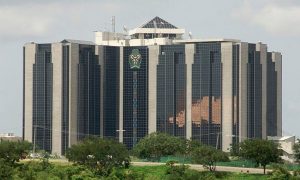
The Chairman, Senate Committee on Banking, Insurance and other Financial Institutions, Senator Tokunbo Abiru, has called on the Central Bank of Nigeria to engage the National Assembly and critical stakeholders in its proposed recapitalisation of banks in the country.
Abiru said this on Saturday at the committee’s retreat with the Nigeria Deposit Insurance Corporation in Lagos State.
He said, “It goes without saying that the financial sector requires to be continuously strengthened to be able to perform its role of intermediating between surplus and deficit units in the economy.
“It is in this light that I welcome the plan by the Central Bank of Nigeria to recapitalise the banks. In doing so, the CBN will be well-advised to engage all critical stakeholders including the National Assembly.
“As a corollary, the country’s financial sector should be under the constant watch of regulators as well as regularly subjected to effective oversight by the National Assembly if it must remain resilient and continue to command the confidence of the public.”
Speaking on the essence of the retreat, he said, “The essence is for better understanding and deepening of the role of the deposit insurance business being led by the NDIC.
“Also, we have seen that the banks in Nigeria have been resilient, in spite of the evidence that we see on the global stage and even on the national stage. We are very mindful locally here of the serious depreciation in the value of our currency. Of course, you know that has an impact on the balance sheets of the banks, to that extent the role of the NDIC is very important.
“Yes, we know that the ratios of the banks are very good today. We have also heard that the CBN is about to recapitalise the banks, which means that we as legislators, must understand the role that the regulators are playing. That is one of the essence of why we are here.”
In his welcome address at the retreat, the Managing Director/Chief Executive, NDIC, Bello Hassan, said the retreat would enable a mutual working relationship between the legislature and the corporation.
“It is to this end, that the theme of the retreat and the papers to be delivered, were carefully selected, to create the right ambience for robust interactions and experience sharing during the exercise.
“As you are aware, the Deposit Insurance System is an important component of the financial safety net, and plays a crucial and indispensable role in the attainment of financial system stability. In Nigeria, the effective discharge of the corporation’s mandate since its establishment about 35 years ago, has gone a long way in engendering public confidence in our banking system, while also providing strong support to the monetary authority in the formulation and implementation of sound banking policies,” Hassan said.
He added that a robust legal framework is at the heart of an effective Deposit Insurance System in any jurisdiction.
“It is against this backdrop, that Principle 2 of the International Association of DepositInsurers Core Principles for Effective Deposit Insurance, harps on the powers of a Deposit Insurer (DI). It underscores the necessity for a DI to have all powers necessary to fulfill its mandate and further emphasizes that these powers should be formally specified in enabling legislation.
“The above, and the benefits of sound oversight, have combined to underscore the significance of the legislature to the Corporation and the importance of the harmonious working relationship between the two, in the interest of the banking system in particular and the economy in general,” he concluded.
The NDIC is the agency empowered to protect depositors of deposit-taking financial institutions.
It provides incentives for sound risk management in the Nigerian banking system as well as contributes to the stability of the financial system.
 DailyrecordNg …Nigeria's hottest news blog
DailyrecordNg …Nigeria's hottest news blog








